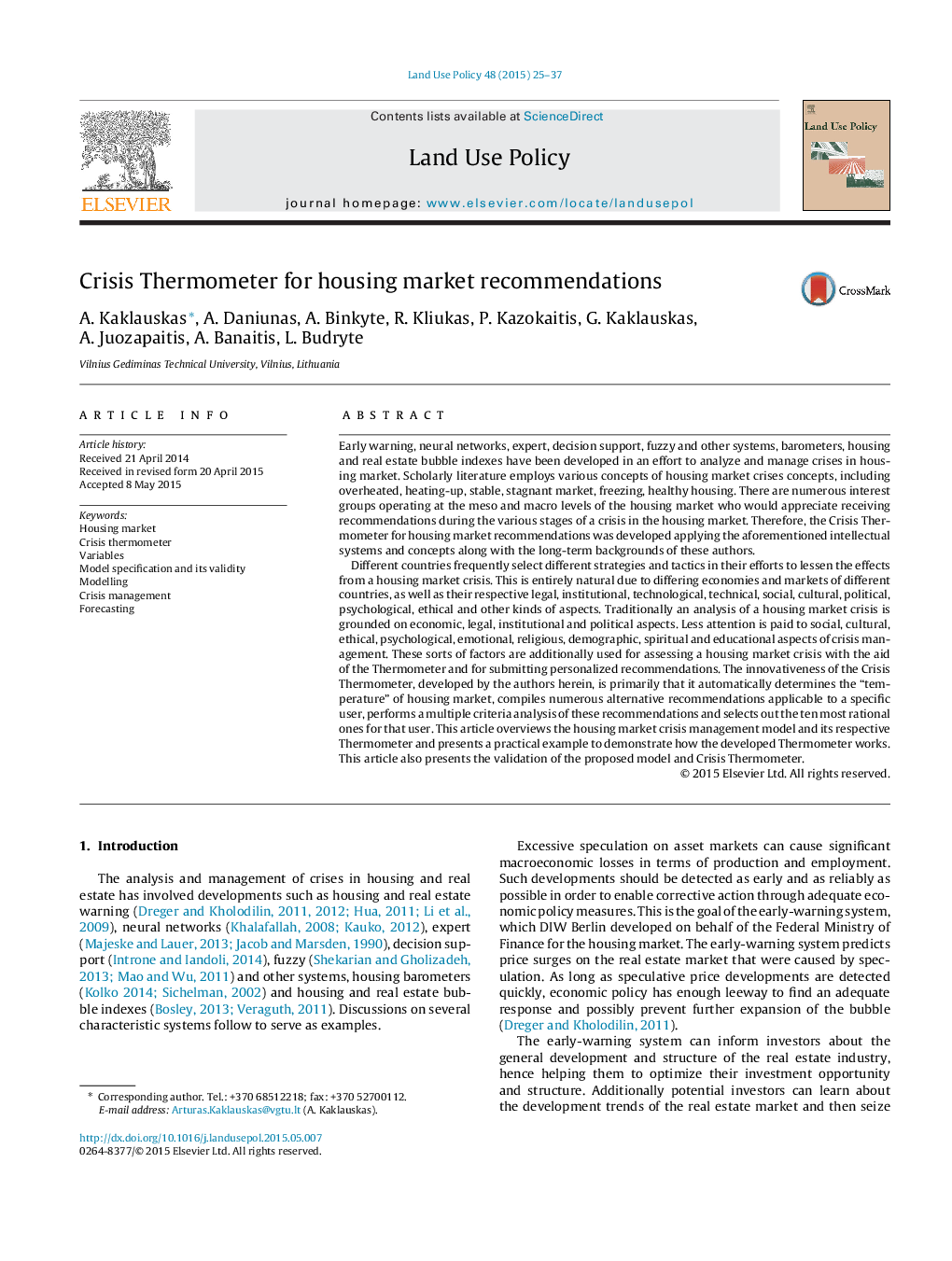| Article ID | Journal | Published Year | Pages | File Type |
|---|---|---|---|---|
| 6547875 | Land Use Policy | 2015 | 13 Pages |
Abstract
Different countries frequently select different strategies and tactics in their efforts to lessen the effects from a housing market crisis. This is entirely natural due to differing economies and markets of different countries, as well as their respective legal, institutional, technological, technical, social, cultural, political, psychological, ethical and other kinds of aspects. Traditionally an analysis of a housing market crisis is grounded on economic, legal, institutional and political aspects. Less attention is paid to social, cultural, ethical, psychological, emotional, religious, demographic, spiritual and educational aspects of crisis management. These sorts of factors are additionally used for assessing a housing market crisis with the aid of the Thermometer and for submitting personalized recommendations. The innovativeness of the Crisis Thermometer, developed by the authors herein, is primarily that it automatically determines the “temperature” of housing market, compiles numerous alternative recommendations applicable to a specific user, performs a multiple criteria analysis of these recommendations and selects out the ten most rational ones for that user. This article overviews the housing market crisis management model and its respective Thermometer and presents a practical example to demonstrate how the developed Thermometer works. This article also presents the validation of the proposed model and Crisis Thermometer.
Related Topics
Life Sciences
Agricultural and Biological Sciences
Forestry
Authors
A. Kaklauskas, A. Daniunas, A. Binkyte, R. Kliukas, P. Kazokaitis, G. Kaklauskas, A. Juozapaitis, A. Banaitis, L. Budryte,
